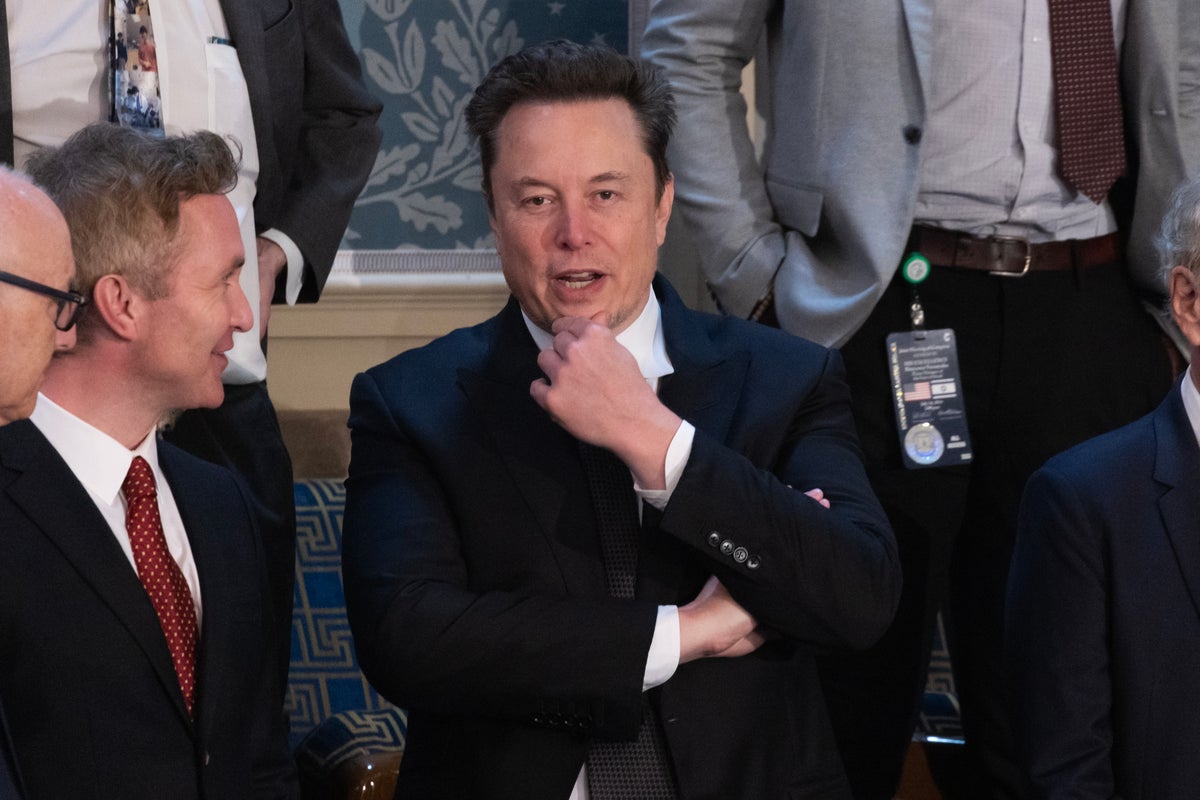
Support truly
independent journalism
Elon Musk, the owner of X, reposted an altered video of Kamala Harris without noting that it had been edited, seemingly in violation of his own platform’s policies.
The world’s richest man reposted an video which seems to have been deceptively edited to make it appear as if a real campaign ad, where Harris says that she’s the “ultimate diversity hire,” President Joe Biden is senile and that she doesn’t “know the first thing about running the country.”
The video is a remaking of a Harris campaign ad, with images of former President Donald Trump and his running mate JD Vance removed and images of Biden added, The New York Times noted. The original ad was released on Thursday.
The account that initially uploaded the edited video, @MrReaganUSA, states that it’s a “parody.” Musk makes no such mention, simply stating “This is amazing,” and adding a laughing emoji. Musk’s post had been viewed more than 120 million times as of Sunday afternoon.
The post appears to be violating X’s own policy against sharing “synthetic, manipulated or out-of-context media that may deceive or confuse people and lead to harm.”
The director of the Digital Democracy Project at the Demand Progress Education Fund, Alex Howard, responded to Musk, saying, “This is a violation of @X’s policies on synthetic media and misleading identities. Are you going to retroactively change them to allow violations in an election year?”
X’s policy was instituted in April last year, months after Musk bought the platform. It states that misleading media is content that’s “significantly and deceptively altered, manipulated or fabricated” and is “likely to result in widespread confusion on public issues.” The content has to be labeled or deleted.
Musk has previously said that the “community notes” feature should be used to notify users of misleading information. There was no note on Musk’s post as of Sunday afternoon.
Community notes users suggested a number of possible notes on Friday night, The Times noted.
”This is an AI generated video of Vice President Kamala Harris using audio of clips that were never actually stated by the VP,” one suggestion stated. “Videos like this are dangerous to those who can not decipher AI generated content from reality.”
Pro-democracy groups have warned about deepfakes – meaning content using artificial intelligence and other types of technology to create videos, audio, and images spreading misinformation.
Before the New Hampshire Democratic primary in January, AI was used to make it appear as if Biden was telling voters in a robocall not to vote. The political consultant behind the calls faced charges of voter suppression and impersonating a candidate.
During the Republican primary earlier this year, fake videos showing former Secretary of State Hillary Clinton backing Florida Governor Ron DeSantis, or stating that he was leaving the race, were shared across social media.
The Global Network on Extremism and Technology said in March that “deepfakes are already having a corrosive effect on the democratic process.”
“These technologies will also be eagerly adopted by extremists across the ideological spectrum, who will look to advance their radicalisation and recruitment efforts at greater speeds and scale,” the authors added.
“When it comes to elections, it is becoming increasingly clear that the biggest new threat in 2024 comes from the impact of generative AI on the information ecosystem, including through deepfakes,” the Brennan Center for Justice also noted in March.
The misrepresentation of federal candidates or political parties is forbidden under the Federal Election Campaign Act, but the legislation was written in 1971 and it’s unclear how it governs modern technology.
The Federal Election Commission approved a rule-making petition in August last year from a watchdog group that the law be changed to state that it “applies to deliberately deceptive Artificial Intelligence (AI) campaign advertisements.” The change was backed by the Democratic National Committee but opposed by the Republican National Committee which argued that it could be a violation of the First Amendment.







